New top story from Time: A Year in a School Bus: Amid COVID-19, A Family Finds Freedom Traveling the American West
Paula wakes up in her bus around 4:30 a.m. most days. She can usually still see the stars. She works for a few hours, often on freelance projects using her training as a biologist, and makes breakfast when her 12-year-old son Max gets up around 7:00. (TIME has agreed to grant Paula and Max pseudonyms out of concerns for their safety.) She feeds their dog and cat, and then she and Max, who is on the autism spectrum, begin homeschooling. They follow specialized, skills-based lesson plans to keep his work short and consistent—at least two to three hours a day, seven days a week. By 10:00, they usually “hit the ground running” on renovating their bus, she says. They try to complete one project a day, big or small.
Paula, 39, and Max have lived in their 35-foot skoolie—a term for school buses which have been renovated into small mobile homes—for nearly a year, often traveling across public Bureau of Land Management (BLM) land in Arizona, California, Nevada and Utah. BLM land makes up one-tenth of the land in the U.S.—much of which is in the American West—and huge portions are available for dispersed camping, or camping away from developed recreation facilities. People in converted vehicles can park in undeveloped areas for up to two weeks at a time for free, and can stay at most campgrounds for the same time as long as they pay a fee, which ranges from $5 to over $100 a night. The BLM also runs “Longer-Term Visitor Areas” in California and Arizona between September and April, where people can stay for months at a time with the proper permits.
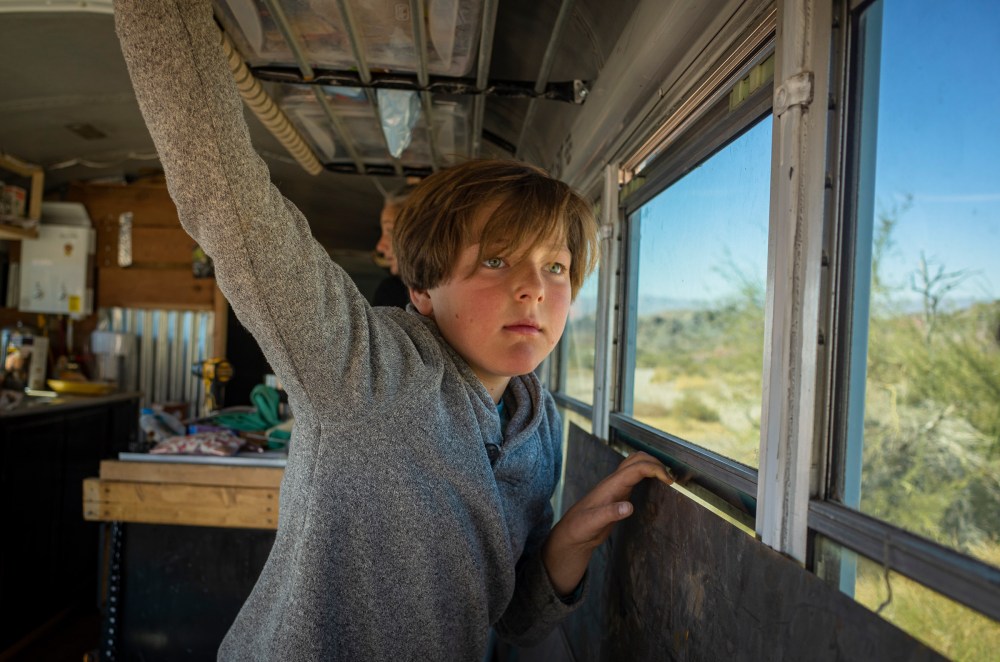
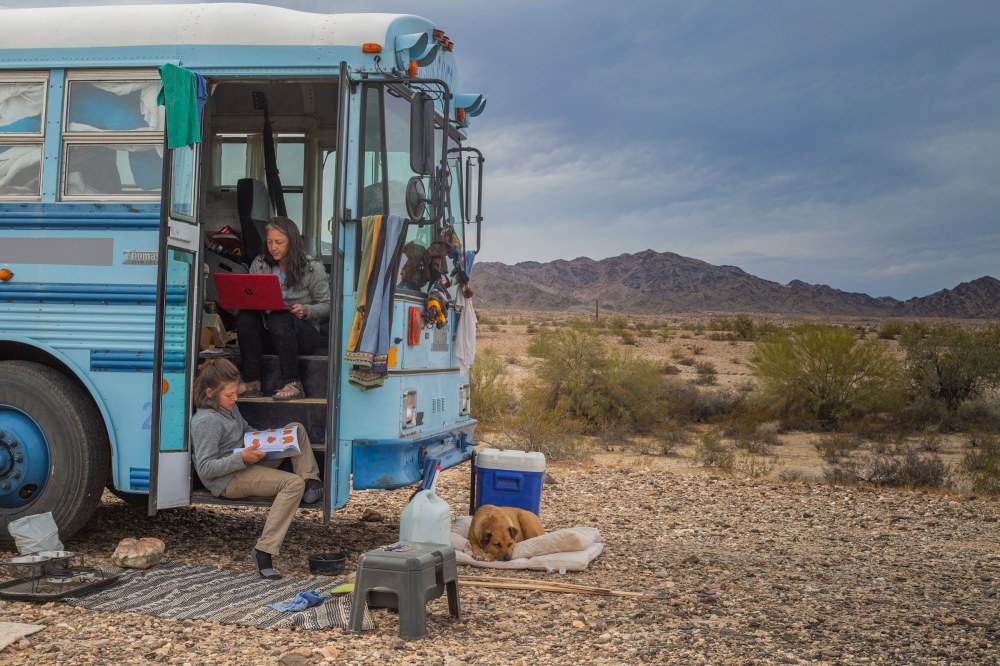
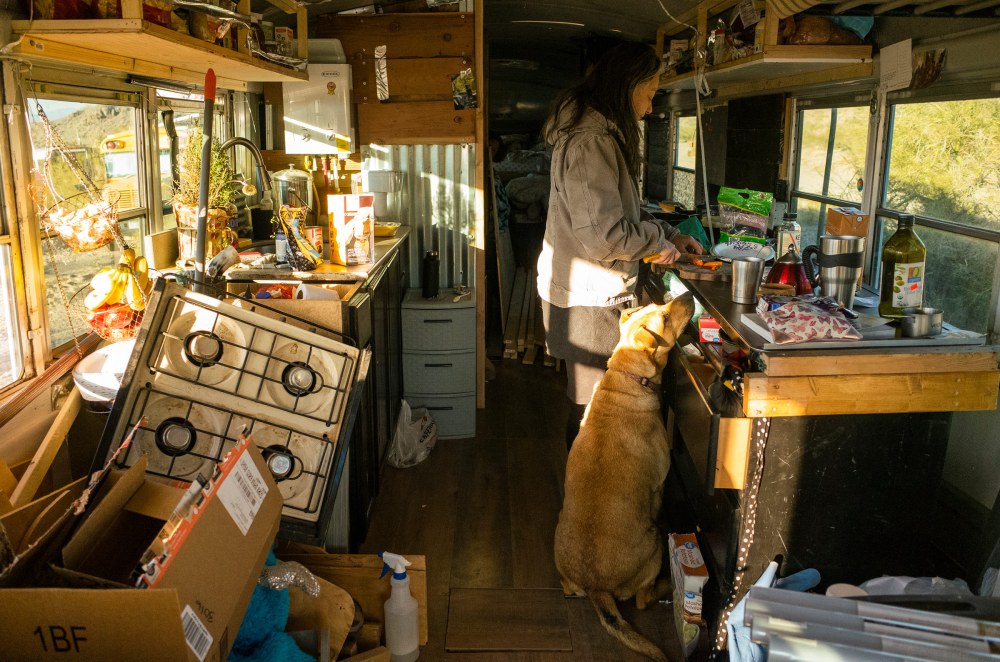
The move towards towards skoolies or converted vans—sometimes referred to as #vanlife online—has grown in recent years. It sharply ticked up during the COVID-19 pandemic, when lockdowns moved much of American life online last spring, and plunged millions into unemployment. The nomadic lifestyle can allow people to live more sustainably, affordably and with greater flexibility, and has become popular with Americans contending with rising housing costs. There’s little hard data on mobile living, but the U.S. Census Bureau estimates that in 2019 over 140,000 people were living out of vans, recreational vehicles or boats—a 38% increase from three years before. A Bureau of Land Management spokesperson tells TIME that over 19 million people visited BLM-managed land in 2020, and the use of remote locations and dispersed camping “increased significantly with more people in more places.”
Paula and Max made the move for several reasons. Skyrocketing rent compounded by recent wildfires—which have displaced Paula twice over the past five years—made finding housing where she and Max lived in Washington state near impossible, she says. She felt Max’s school system was not addressing his needs, and was tired of feeling like she had to spend hours “rattling cages” to get help. So when the pandemic hit last March and Paula lost several jobs, it was the last straw.
“I made this decision because I felt like it was proactive,” she says. “This gives me home ownership. This gives me freedom. This gives me the ability to offer my son greater opportunity in life… This is an empowering decision.”
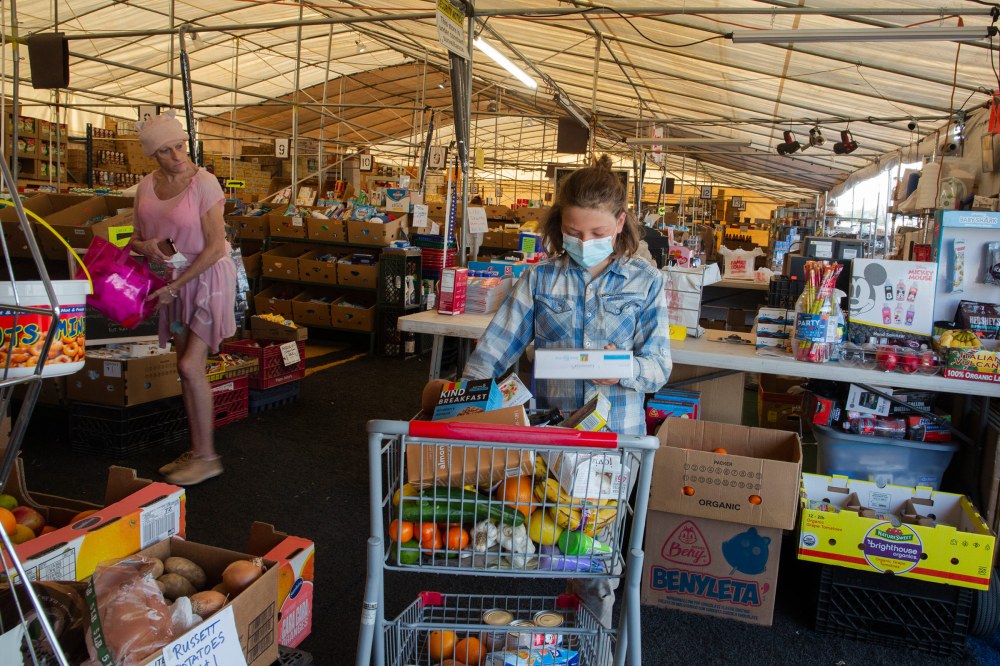
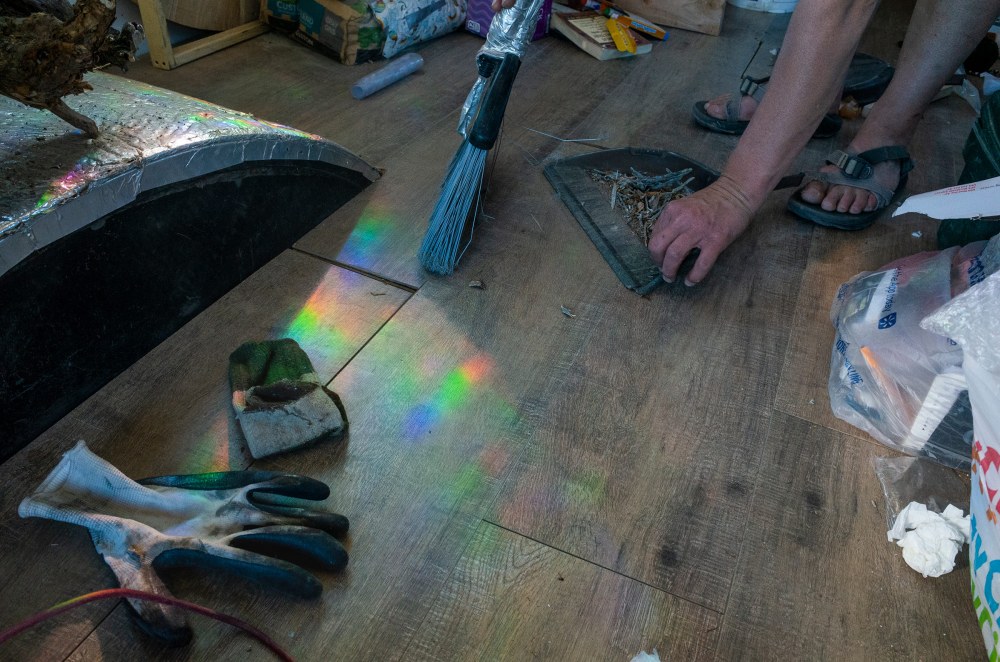
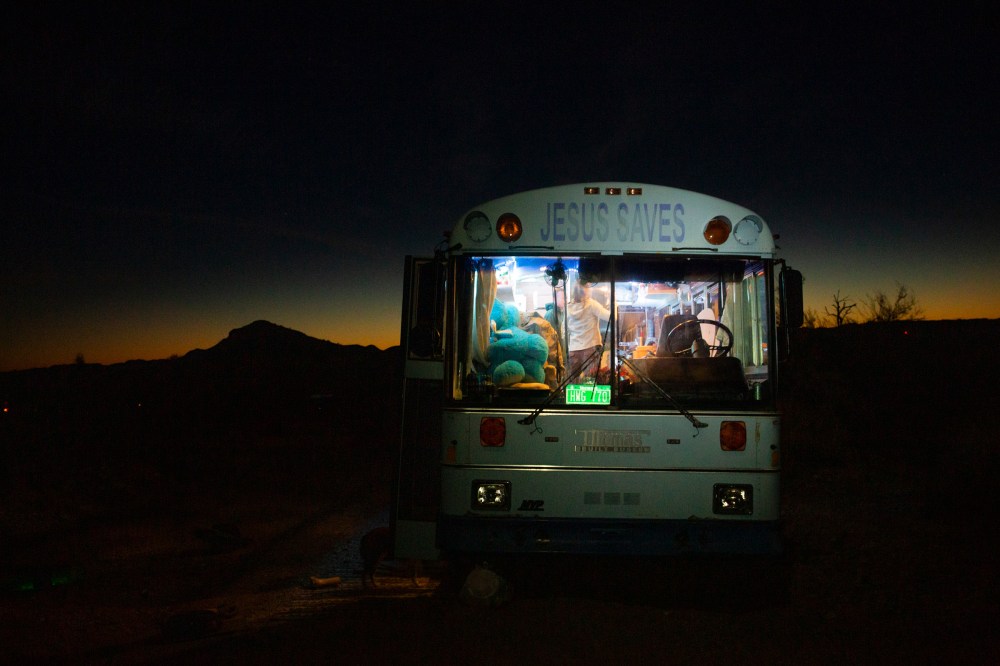
During their travels, Paula and Max have built out their new home, installed beds and closets, solar electricity and internet, a kitchen with a stove, butcher block counter tops and a fridge, a tiled bathroom complete with a toilet and a hot shower, as well as rigging for Max’s occupational therapy.
“A lot of [people] are trying to stay out of public systems,” Paula adds. “Including myself.” In addition to people who’ve been driven by the pandemic, she says she’s met people who moved into skoolies after environmental disasters destroyed their homes, or retired and want to stretch a fixed income.
But, Paula stresses, many people she’s met chose the lifestyle because they love it—like Amber Manzanares, 29, who says she’s lived out of buses or vans for over five years, because she prefers the nomadic lifestyle’s inherent focus on travel and adventure. “We’re travelers,” she says about her decision to live out of a skoolie with her family. “We enjoy the road.”
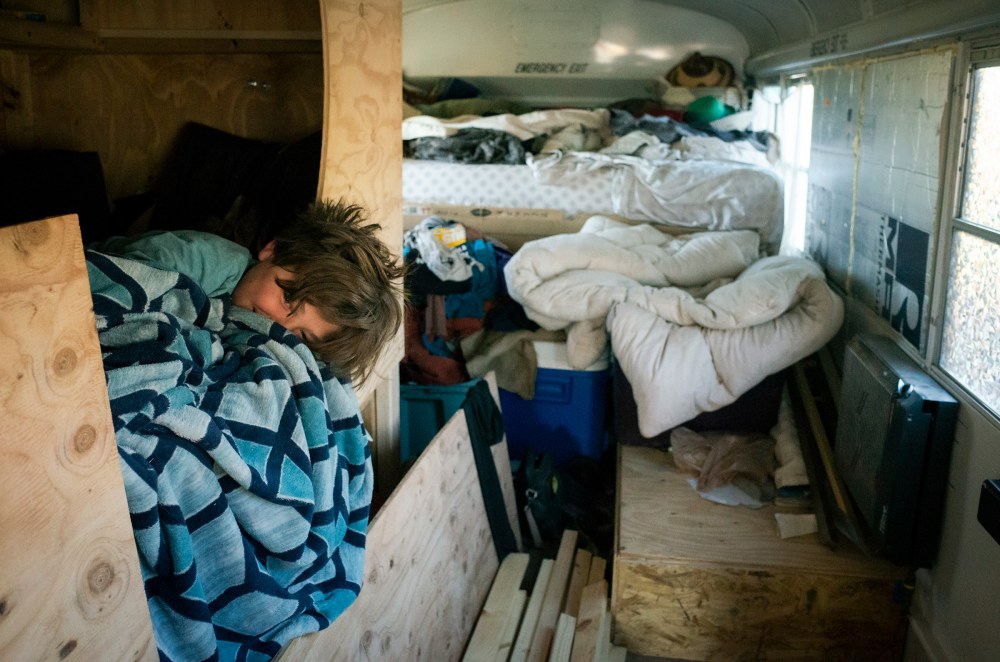
For some, the pandemic’s impact on lives and livelihoods has increased the appeal of mobile living. Arshlynne Aketch, 25, bought and renovated an orange 1972 Ford Econoline after she lost her job in Los Angeles last spring and was unable to pay rent, she says. She’s now lived out of the van, nicknamed “Creamsicle,” on BLM land for over two months. Brianna Kirk, a 19-year-old University of St. Thomas student, made the jump to her 32-foot school bus last spring and has been able to continue her studies because the pandemic moved classes online. “When you live small like this,” she says, “it opens up a world of experiences and gives you freedom to do really whatever you want.”
And Tiffany Fede, 40, and her 6-year-old son moved into their skoolie last November after her husband passed away in March of 2020. “I wanted it to be just us,” she says. “I wanted to take this time to get to know each other one-on-one.” But in their travels across public land, Fede says they’ve also found “a big, beautiful community.”
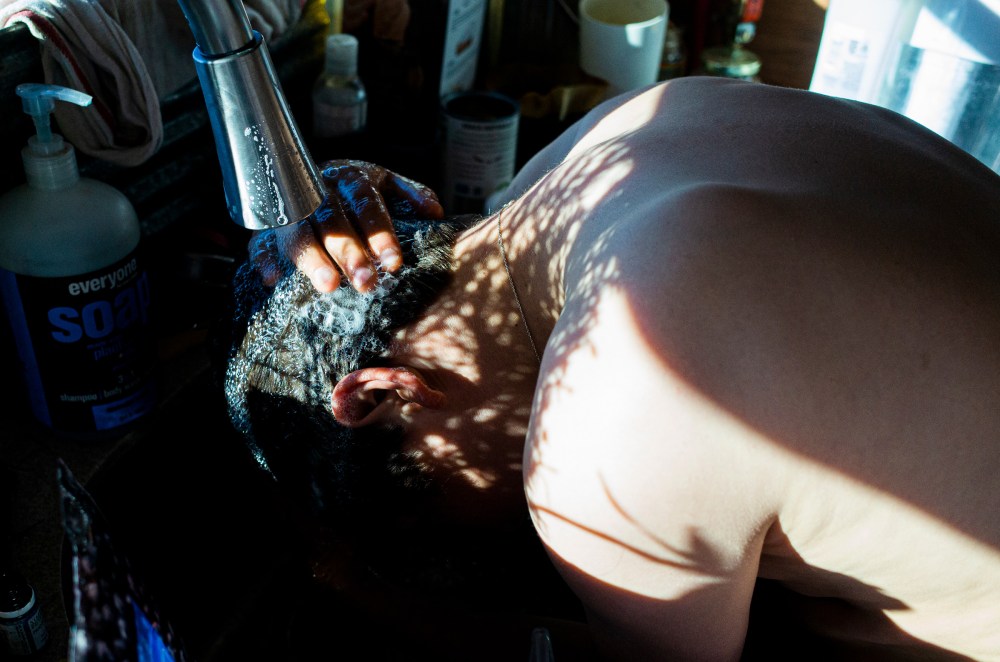
![Paula and Max embrace after working on construction projects for the bus on Feb. 20. They’re careful to clean up after themselves after renovations. Paula says that, in her experience, people living out of skoolies or vans are usually the most respectful towards the land itself. “The people who stay and do full time living, they would like to keep the privilege,†she explains. “[We're] usually the ones that go out and clean up after all of the people that leave stuff behind.â€](https://api.time.com/wp-content/uploads/2021/04/life-in-a-mobile-home-hug.jpg?w=1000&w=1000)
At the Craggy Wash BLM campground in Lake Havasu City, Arizona, where Paula and Fede traveled with people from Skooliepalooza, groups helped each other build out their rigs, cooked community meals, laid out crafting tables and organized a socially distanced pig roast. One night someone set up a projector and they all watched the Oscar-winning movie Nomadland, starring Frances McDormand as a woman living out of her van. “It is not like that for us,” Paula says, referring to the character’s struggles. While she saw parallels to her life, including the supportive community on the land, she says she doesn’t feel like she carries the same sense of grief as McDormand’s character Fern.
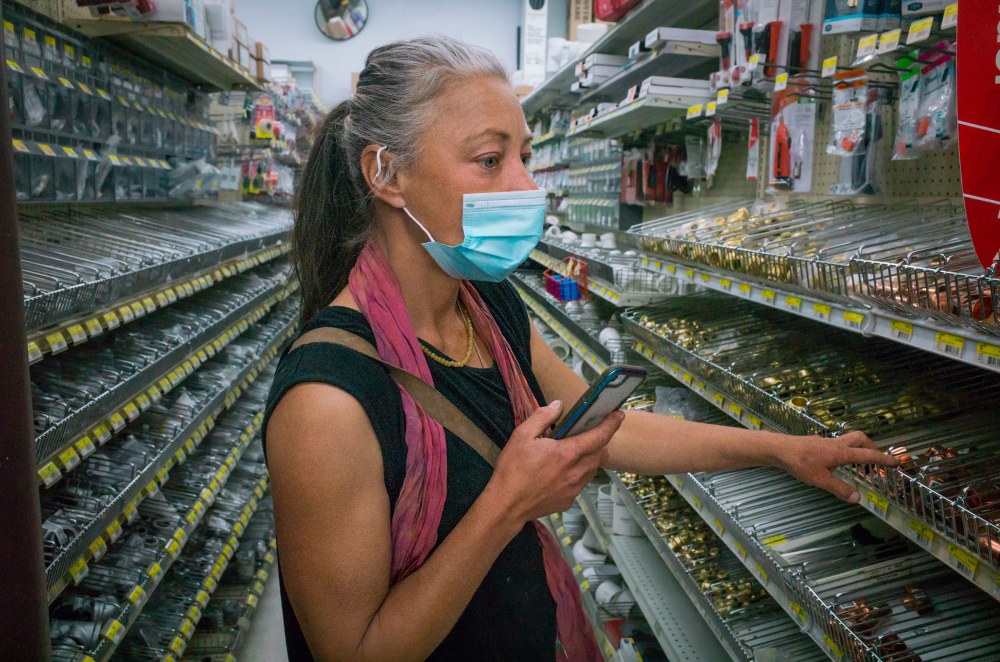
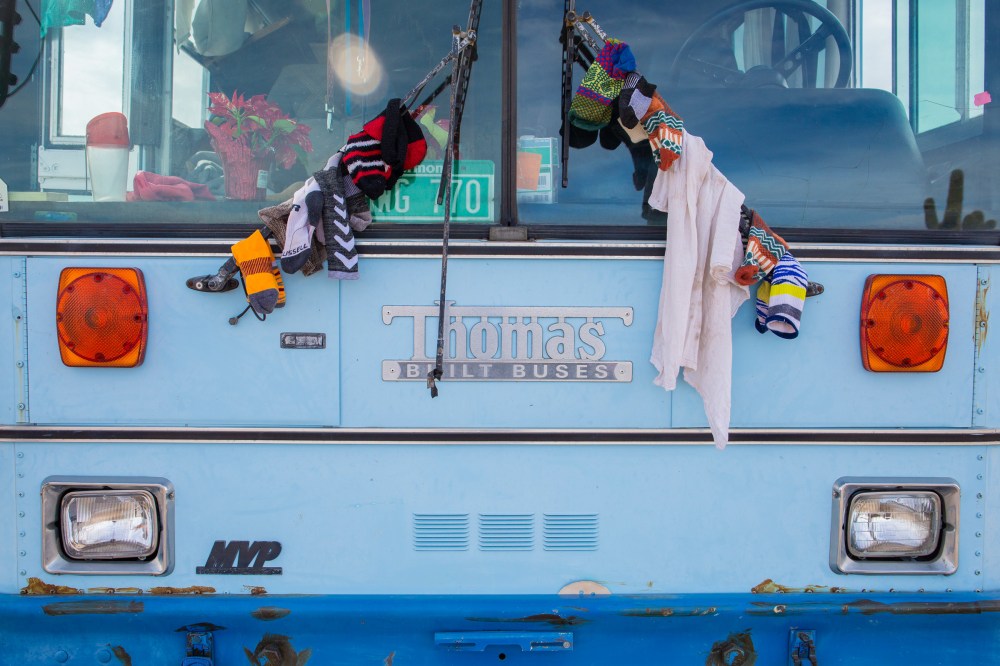
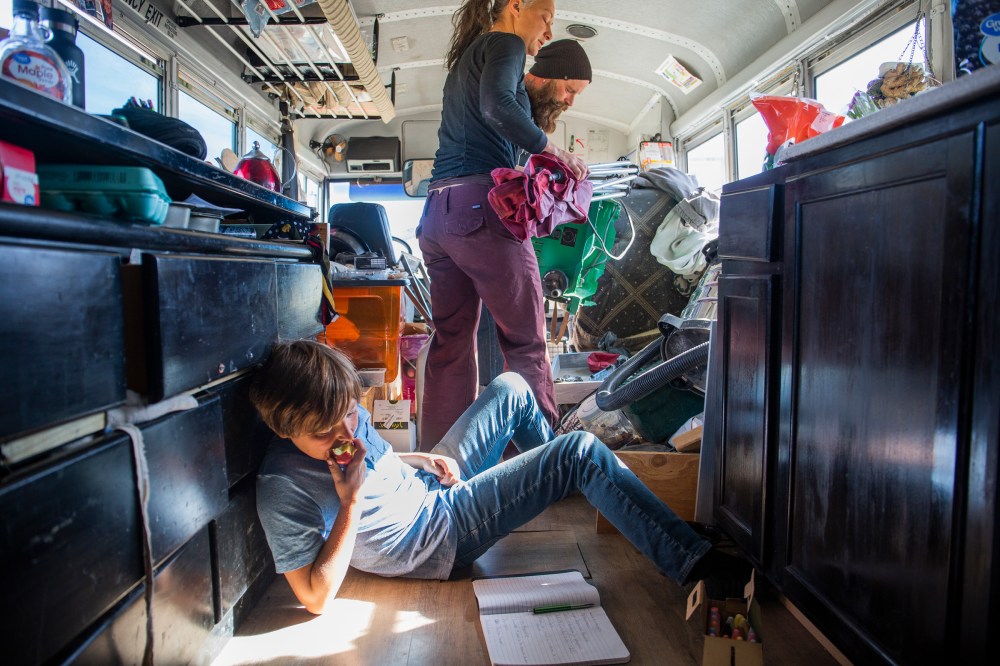
The skoolie lifestyle “would not be possible,” Kirk says, without BLM-managed public land. Many cities have criminalized living in vehicles; Aketch and Kirk both say they’ve had difficulty finding free legal parking in urban areas. But on most undeveloped public land (unless otherwise marked), they can stay for 14 days at a time completely for free. “Having these lands available to us is the only way that we can make living in a vehicle long term really work,” Kirk says. “Quite literally it is like the lifeblood of the community.”
Paula says she and Max won’t stay on BLM land forever. She’s found temporary seasonal work in the Southwest and plans on returning to Washington eventually. As she put it, “I’m going to have to park somewhere.” But for now, they’re comfortable. In the afternoons they read books, do arts and crafts or practice yoga. Paula installed a rock climbing wall on the side of the bus. Max goes on hikes. Then it’s dinner time, perhaps with friends around a campfire. Lots of laughter. Lights out for Max are at 8:30 p.m.
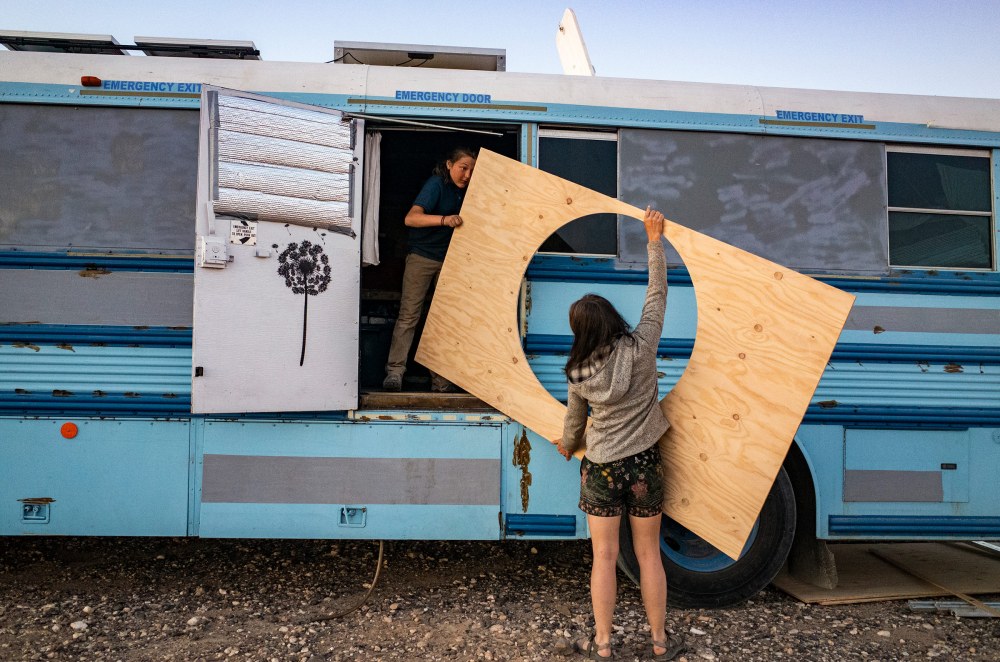
“I can live on the amount of money that I can bring in. I’m not worried about where we’re going to live tomorrow… I’m not running around with my head cut off looking for childcare,” Paula says. “So I’ve been pretty thrilled.”
In March, they drove through the area of California where they first began living out of the skoolie almost a year ago. Paula was overcome with emotion, she says, remembering their first night in the bus, and the fear she felt around the massive lifestyle change ahead of them.
“I just sat there and was like, ‘I can’t believe that I did this. I cannot believe how far I’ve come,'” she says. “You don’t know what you can do until you’re faced with a challenge, and then you have to do it.” She says she realized a part of her—the more fearful part—was gone, and she cried for a long time. And then she took a hot shower, made dinner, and sat outside with her son, watching the sun dip below the horizon.
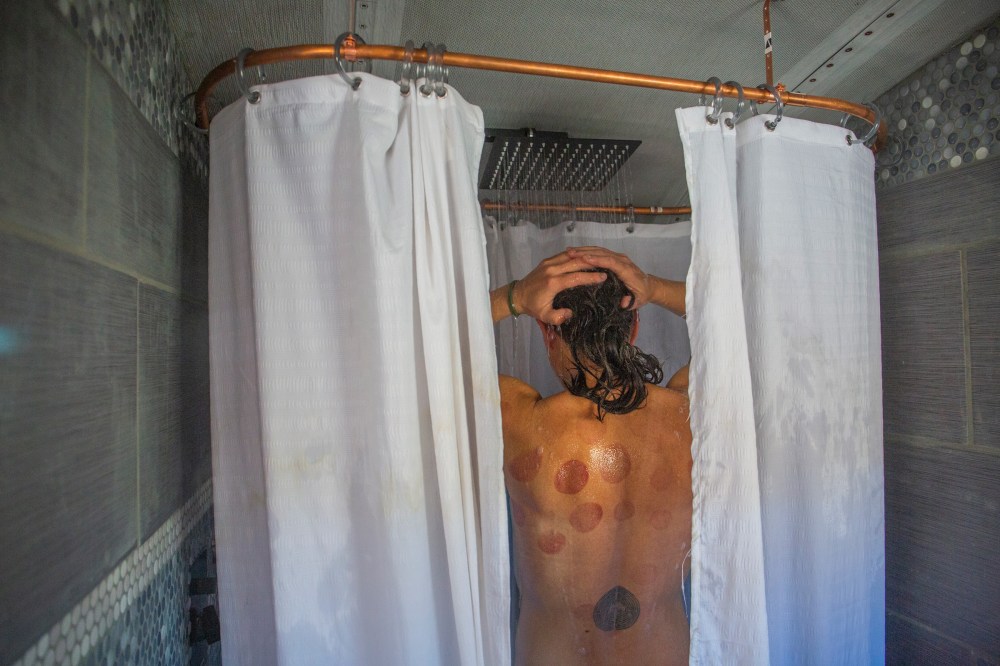
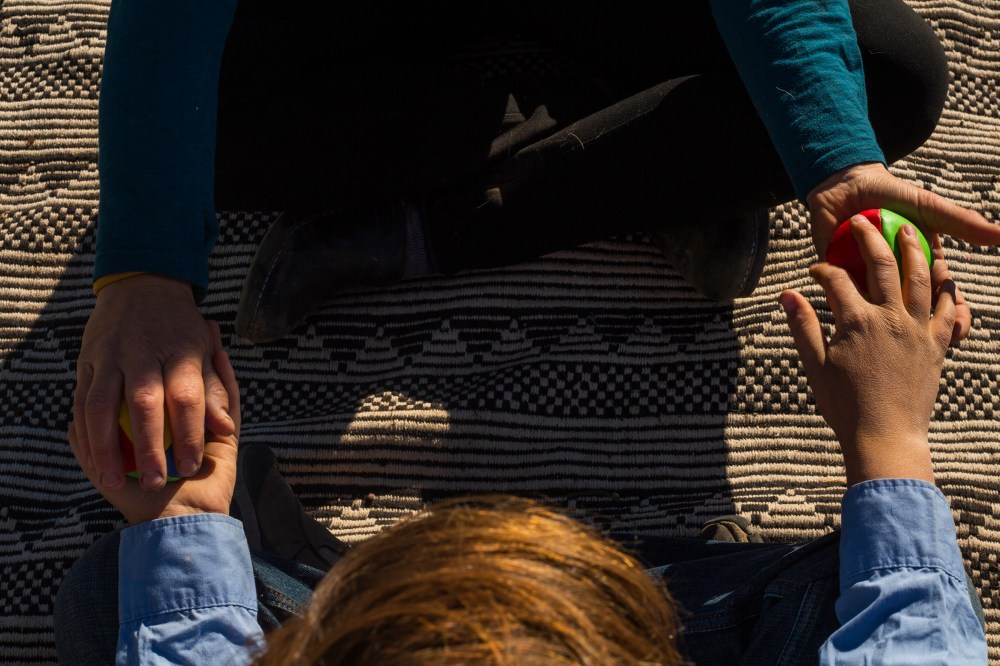
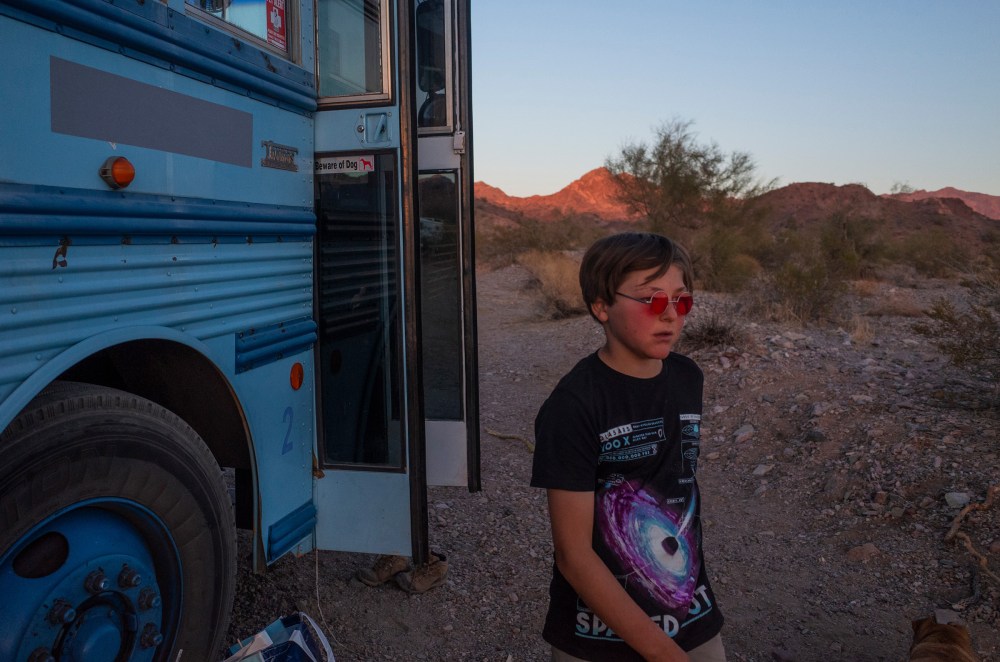


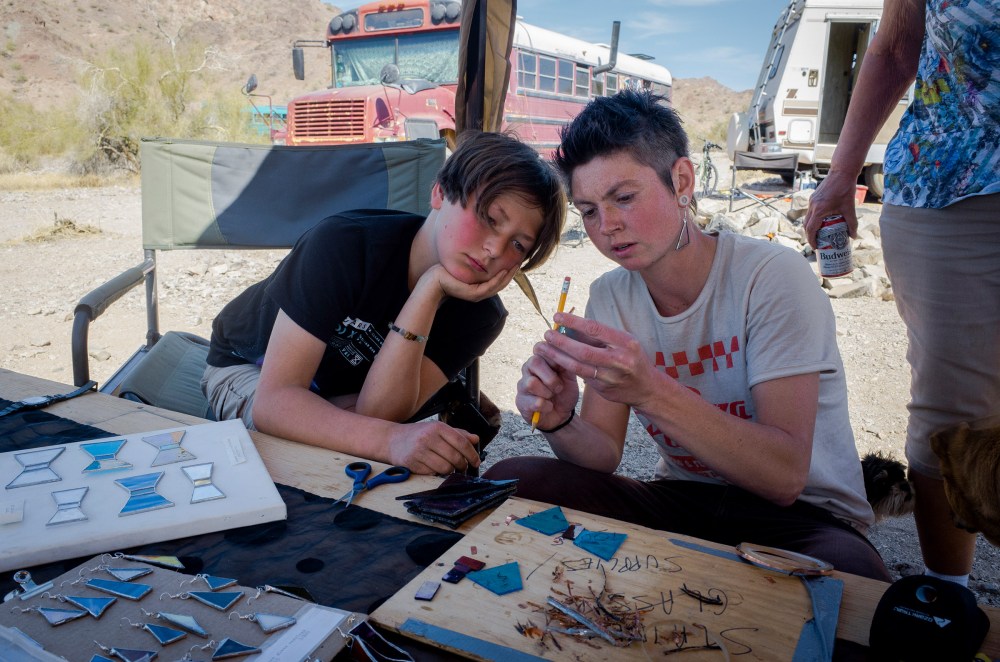
No comments